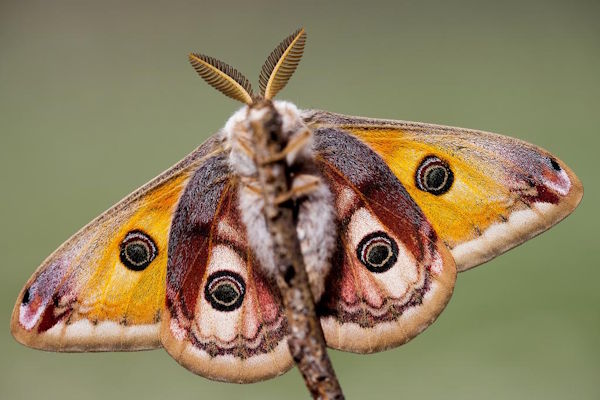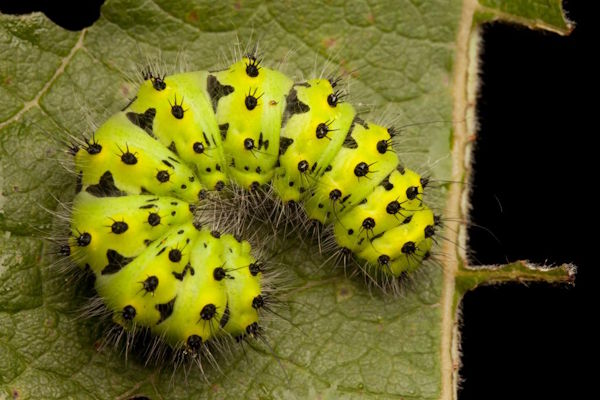This marker on the Cambridge Butterfly Trail is at Stourbridge Common local nature reserve – see the map above.
The Emperor hawk-moth is one of Britain’s most splendid spring insects. Sporting a wingspan of 55 to 80mm, it’s the UK’s only silk moth, famous for its fluffy appearance and striking “peacock” eyespots on all four wings, a unique feature in our moth fauna.
Males, smaller and more vividly coloured with feathered antennae, fly from March to May in search of paler females who release potent pheromones from low vegetation.
Caterpillars are equally remarkable, initially black and orange before turning green with ringed bands and yellow spots. They feed on heather, bramble, willow, birch and other woody plants. They pupate in silk cocoons through winter, sometimes spending two winters underground.
Found in heathlands, moorlands, coastal dunes and scrubby grasslands across much of Britain and Ireland, the Emperor moth remains widespread but never abundant, its brief adult life focused entirely on reproduction.
For more information, please visit Butterfly Conservation’s page on this species – Emperor Moth.





